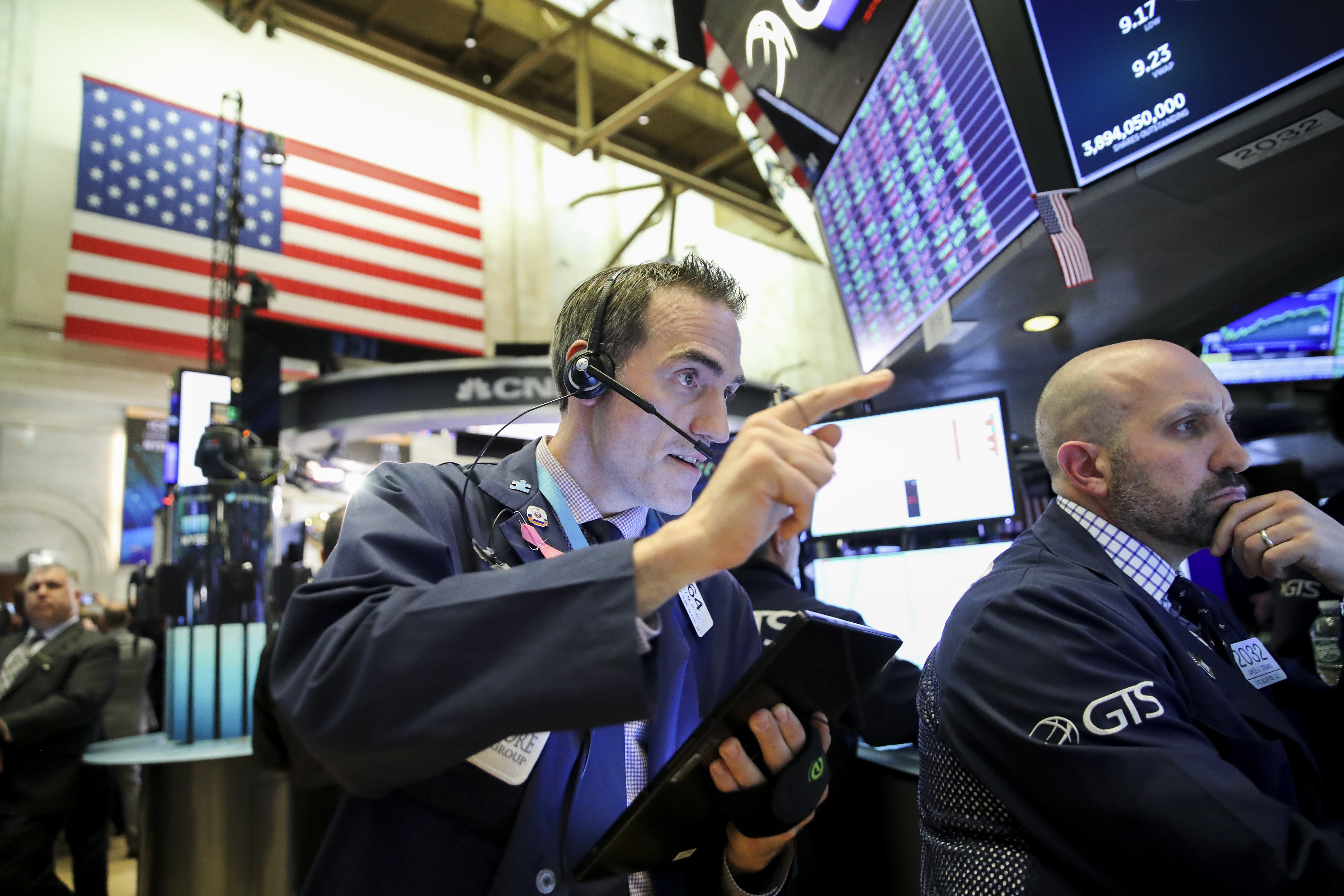
Traders work at the New York Stock Exchange in New York, the United States, on Jan. 8, 2020.
Xinhua News Agency
Stock investors just experienced one of the nastiest weeks in history that recorded the S&P 500’s fastest correction on record, but hold on tight, the market might have more room to fall as the coronavirus damage starts to creep into upcoming economic data, analysts warned.
Major U.S. stock averages suffered their worst week since the financial crisis as fears about the coronavirus disrupting the global economy scared investors away from risk assets. However, stocks might still be searching for a bottom next week when investors grapple with a slew of economic data potentially dragged down by the outbreak.
The Institute for Supply Management will release its manufacturing gauge on Monday. Meanwhile, the Federal Reserve will publish its latest Beige Book on Wednesday, which will detail anecdotal information on current economic conditions. Many expect U.S. manufacturing to have taken a hit from the coronavirus.
“Look out for ISM surveys and Beige Book for early signs of COVID-19 impact,” Michelle Meyer, Bank of America’s head of U.S. economics, said in a note Friday. “It will take time for the ‘hard’ economic data to show the impact but we are already seeing evidence in early economic indicators.”
Weekend action?
The outlook for the week could be changed this weekend by coronavirus headlines or by some sort of intervention by central banks. Expectations are rising on Wall Street that there could be some potential move from the Federal Reserve to get ahead of what could be another rough week.
Fed Chairman Jerome Powell said Friday the central bank is monitoring the coronavirus and pledged action if necessary. Meanwhile, former Fed Governor Kevin Warsh recommended the Fed act as quickly as Sunday before the markets reopen. The market is already pricing in a 100% chance of at least one rate cut at the Fed’s March policy meeting.
Jim Paulsen, chief investment strategist at the Leuthold Group, is worried about the cascading effect of coronavirus hitting upcoming economic data points. “ISM manufacturing is going to be widely scrutinized,” he said.
The ISM manufacturing index rose to a reading of 50.9 last month, the highest level since July (Any reading above 50 signals expansion.) Bank of America expects ISM manufacturing to pull back to 50.0 and said Fed Beige Book may provide “early insight” into the U.S. economic impact from the deadly virus.
Cutting forecasts
Next week, investors will also likely grapple with more warnings from major companies about broken supply chains and easing demand due to the outbreak.
Apple, Microsoft, Nike and United Airlines have all sounded alarms that they will not meet their earnings and revenue guidance because of the virus.
Wall Street strategists this week were quick to slash their forecasts on corporate earnings and the stock market. Barclays sees the S&P 500 to end the year at 3,000, down from a previous forecast of 3,300. The bank also expects a 2% drop in profits this year. Meanwhile, Goldman said it sees zero earnings growth for American companies in 2020.
To be sure, some believe the steep stock rout has gone too far too fast, betting on at least a small rebound.
“The level of panic has become very extreme and the level of downside price movement is pretty extreme. All of that is to me more of a sign that we are getting closer to the beginning of the end of it,” Paulsen said.
Another source of support could come from the Trump administration, where officials are discussing tax cuts, among other economic reactions, as one option to make up for the economic impact of the coronavirus, the Washington Post reported Friday.
Still, investors will have to be on edge for a while now with more virus headlines, as well as the key Super Tuesday Democratic primaries. Some notable investors including “bond king” Jeffrey Gundlach blamed the rise of Democratic presidential hopeful Bernie Sanders for helping accelerate massive sell-off.
Week ahead calendar
Monday
10:00 a.m. Construction spending
10:00 a.m. ISM manufacturing
Tuesday
Earnings: Target, Kohl’s, Nordstrom
6:30 p.m. Fed president Charles Evans speaks
Super Tuesday primaries
Wednesday
Earnings: Zoom Video
8:15 a.m. ADP employment
10:00 a.m. ISM non-manufacturing
10:00 a.m. Treasury secretary Steven Mnuchin testifies to House Appropriations Committee on budget
2:00 p.m. Beige book
Thursday
Earnings: Kroger
8:30 a.m. Nonfarm productivity
8:30 a.m. Productivity & costs
10:00 a.m. Factory orders
10:00 a.m. Durable goods orders
Friday
8:30 a.m . Trade balance
8:30 a.m. February jobs report
10:00 a.m. Wholesales inventories
Subscribe to CNBC PRO for exclusive insights and analysis, and live business day programming from around the world.


